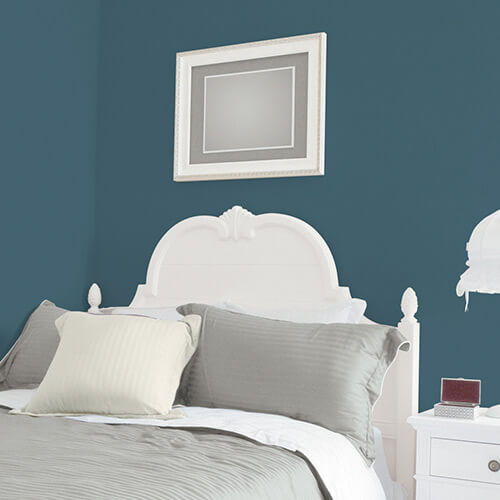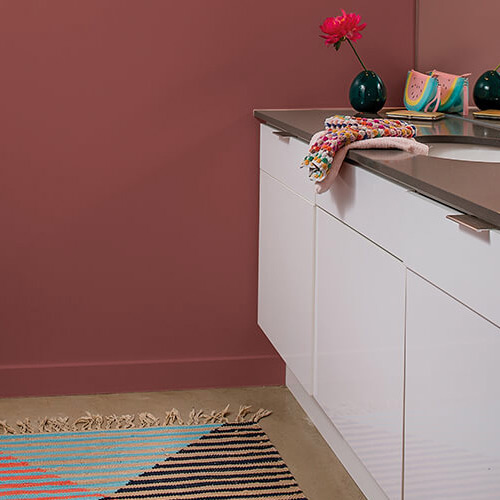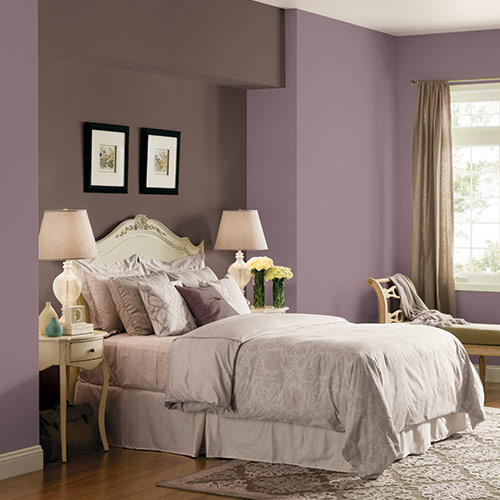Painting Advice: How To Paint A Relaxing Bedroom
When it comes to bedrooms, it is vital to create a mood that enhances repose. Painting a bedroom is the simplest and easiest way to update the room that you spend so much time in. Use this painting advice to help you create a relaxing bedroom.
Find more painting advice

How To Paint A Relaxing Bedroom
Painting Advice
1. Select a Relaxing Color
Our first painting advice is to think about the mood that you would like to set for the bedroom space.
If you would like to create a relaxing space that feels inspired by nature, select a color like Smoky Slate or My Love.
You can create a classic relaxing look with neutral colors like Cuppa Coffee or Antique White.
Second, using the right paint is key to creating professional and long lasting results. PPG Timeless Interior Paint and Primer is a durable paint for homeowners, and creates a superb finish that will add instant beauty to your space.
See PPG Timeless

How To Paint A Relaxing Bedroom
Painting Advice
2. Select Your Sheen
Follow this painting advice to use the right paint finish for your bedroom:
-
Flat paints lend an elegant look to a space and can work well in bedrooms and dining rooms
-
Eggshell paints are more washable than a flat option and are recommended by house painters for areas like living rooms and bedrooms
-
Satin paints are even more washable and provide a great surface in any room
-
Semi-gloss paints will provide the best durability and are great for kid’s rooms, bathrooms and kitchens

How To Paint A Relaxing Bedroom
Painting Advice
3. Paint Supplies
Choosing the right paint supplies will get you up and painting without much hassle. The basic supplies required include:
-
Multiple paint brushes
-
Paint roller
-
Paint roller tray
-
Caulk and caulking gun
-
Drop cloth
-
Putty and putty knife
-
Poles
-
Masking tape
-
Rags
-
Step ladder

How To Paint A Relaxing Bedroom
Painting Advice
4. Time To Paint
Our painting advice is to begin at the ceiling and work your way downward so that you can catch any drips.
Start at the ceiling, using a brush. Work the brush in to the corners. Use the roller on the walls, rolling left to right until finished.
-
Dip your brush half way in to the paint and shake off the excess. Hold the handle and apply light pressure to paint the surface.
-
When using a roller, dip slowly in to the paint-filled tray until the roller is saturated. Remove excess paint over ridges in the tray. Roll using uniform strokes.






